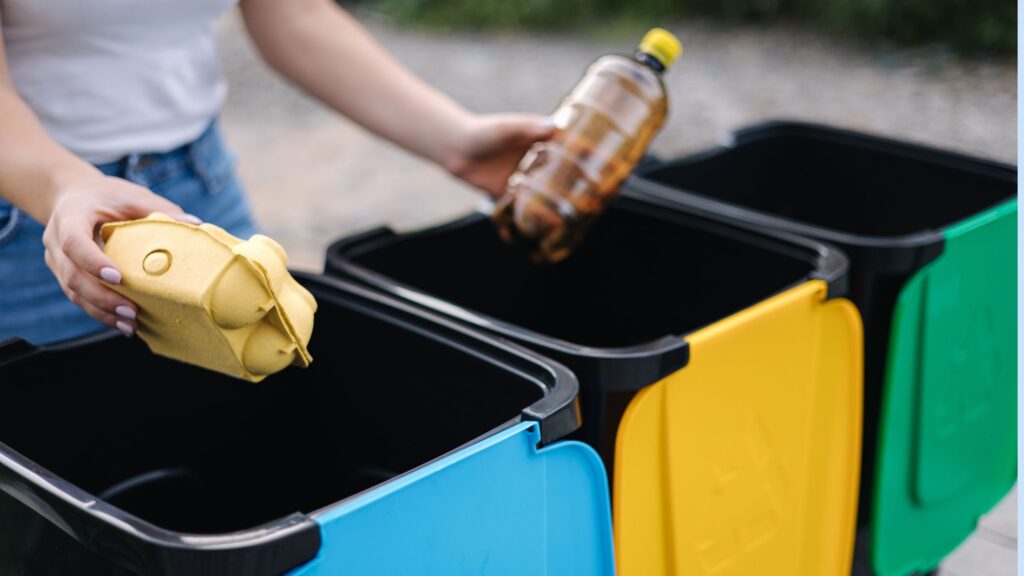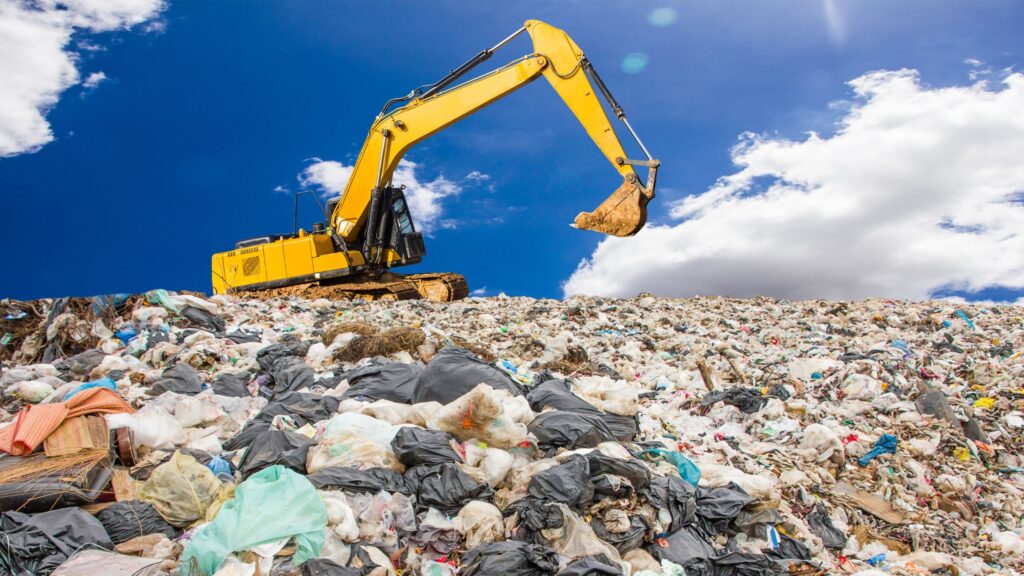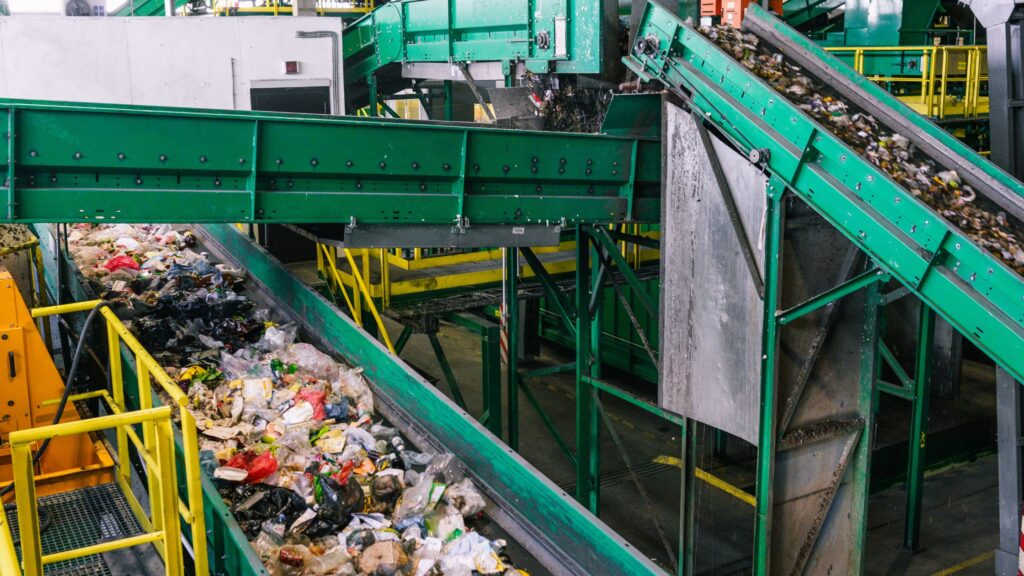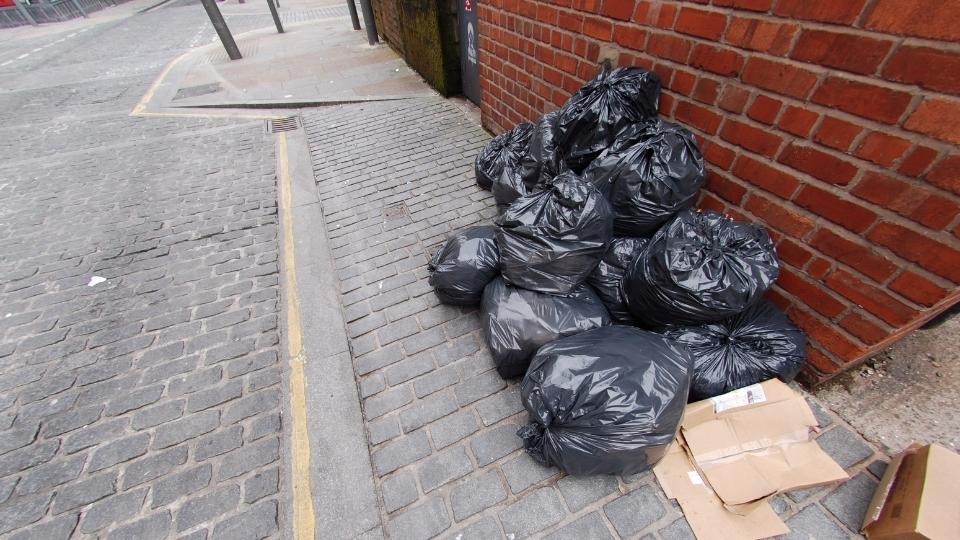
Waste management in the UK is undergoing significant transformation, driven by new legislation, rising sustainability expectations, and the increasing use of innovative technologies.
The year 2025 will be pivotal in shaping the future of the UK’s waste management landscape.
Below are some key events and dates that will define the future of UK waste management in 2025:
Table of Contents
- Simpler Recycling Legislation – March 31st
- Landfill Tax Increases – April 1st
- Rising Sustainability Expectations
- Extended Producer Responsibility (EPR) for Packaging – October 2025
- The Rise of Artificial Intelligence in 2025
- Conclusion
Simpler Recycling Legislation – March 31st
As of March 31st 2025, the UK government will introduce Simpler Recycling laws which are designed to make recycling more accessible and effective.
The UK Government aims to achieve a 65% recycling rate of municipal waste by 2035.
The new regulations will streamline the recycling process, reduce contamination, and improve the quality of recyclable materials.
For example, clearer guidelines on which materials can be recycled will help reduce the UK’s contamination rate, which currently sits at about 25%.
The bin separation that will now be in place splits general waste, dry mixed recycling, glass recycling and food waste into four bins.
By making recycling easier and more straightforward, these changes are expected to significantly boost recycling rates, moving the UK closer to its ambitious 2035 target.

Landfill Tax Increases – April 1st
The UK Government will increase its landfill tax, which has been steadily rising for years as part of the country’s strategy to minimise waste sent to landfill.
The standard rate of the landfill tax in 2025 will be £126.15 per tonne of waste (up from £103.70 in 2024).
This increase aims to reduce reliance on landfills and encourage investment in recycling, composting, and waste-to-energy technologies.
Currently, approximately 22% of the UK’s waste is still sent to landfill, but the government hopes to reduce this to less than 10% by 2035.
By making landfilling more expensive, this policy will drive businesses to seek more sustainable waste management solutions and invest in technologies that reduce waste and carbon emissions.

Rising Sustainability Expectations
Sustainability expectations are expected to continue to rise in 2025 and for many years to come.
Businesses across the UK are under increasing pressure to meet both regulatory and consumer demands for sustainability.
For example, a recent survey by YouGov revealed that 21% of Britons are willing to invest more in products that favour sustainability.
As part of this shift, companies will be required to reduce their waste generation and adopt circular economy practices, which aim to minimise waste and reuse materials.
The UK government has set a goal to cut overall carbon emissions by 68% by 2030 and achieve net-zero emissions by 2050.
Achieving these ambitious targets will require significant improvements in waste management practices, including reducing single-use plastics and increasing recycling rates.

Extended Producer Responsibility (EPR) for Packaging – October 2025
In October 2025, the UK will introduce Extended Producer Responsibility (EPR) for packaging.
This legislation will make manufacturers and importers responsible for the entire lifecycle of their products, including the collection and recycling of packaging waste.
EPR will require producers to fund the collection, recycling, and disposal of packaging materials, creating a financial incentive for companies to design products with less packaging and more recyclable materials.
Currently, only about 44% of plastic packaging is recycled in the UK, but EPR is expected to significantly improve this rate.
With EPR, the UK government aims to achieve a 75% recycling rate for plastic packaging by 2030, reducing plastic waste and its environmental impact.

The Rise of Artificial Intelligence in 2025
The use of Artificial Intelligence (AI) in waste management is set to grow significantly in 2025.
AI technologies will be integrated into waste sorting systems, increasing the efficiency and accuracy of recycling processes.
For example, AI-powered robots can identify and sort materials at speeds far beyond human capabilities, reducing contamination rates and increasing the quality of recycled materials.
In fact, AI-enabled sorting systems can sort up to 80% of materials with greater accuracy, compared to traditional manual sorting processes.
Additionally, AI will optimise waste collection routes, improving efficiency and reducing the carbon footprint of waste transportation.
An example of how AI is already being used here in the UK is that smart bins are being rolled out across the across the country which alert collection teams when they are full.
AI-driven predictive analytics will also help waste management companies forecast waste trends, enabling them to plan better and allocate resources more effectively.

Conclusion
2025 will be a pivotal year in the UK’s waste management journey, with significant legislative changes and technological advancements shaping the sector’s future.
With the introduction of simpler recycling laws, increased landfill taxes, the implementation of Extended Producer Responsibility, and the rise of AI technologies, the UK is taking substantial steps toward a more sustainable future.
These initiatives will help the UK move closer to its ambitious recycling targets, reduce landfill dependence, and foster a circular economy where waste is minimised, and resources are reused to their fullest potential.







